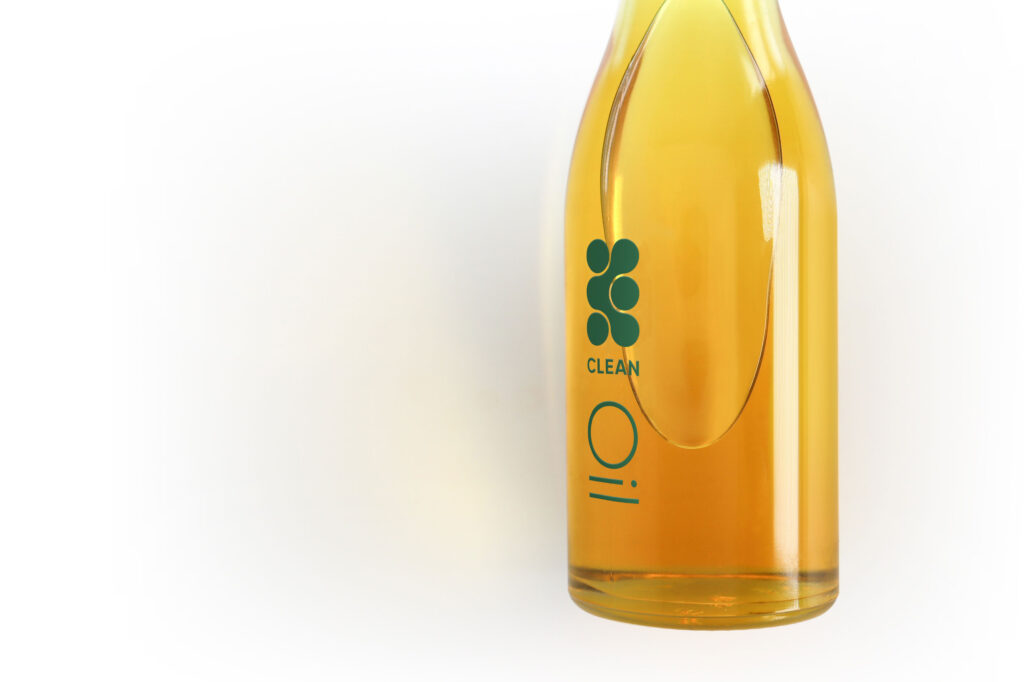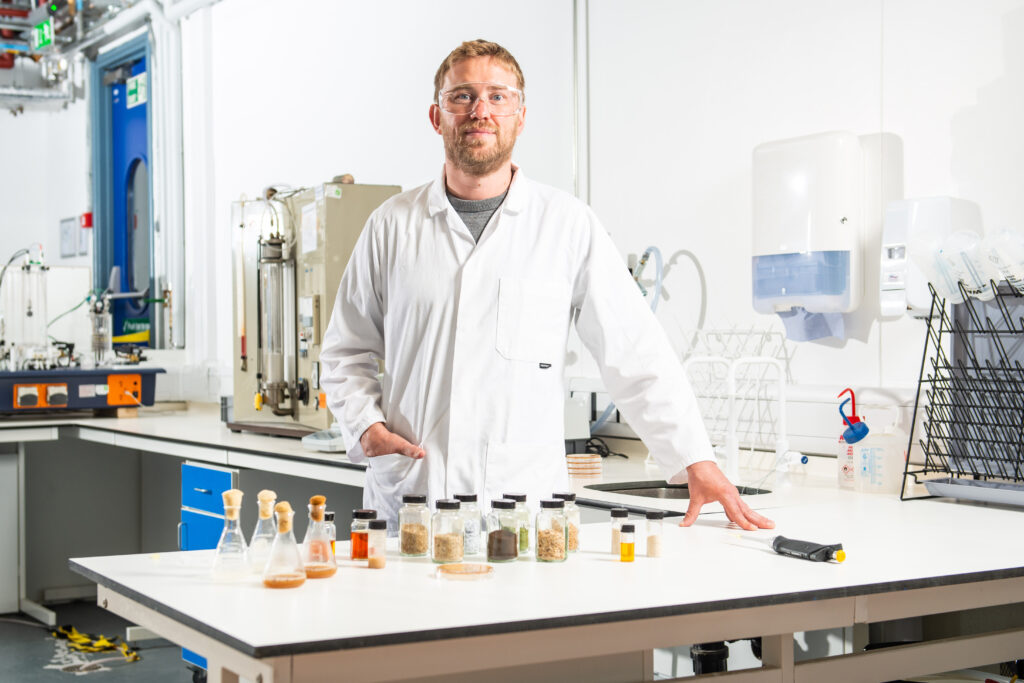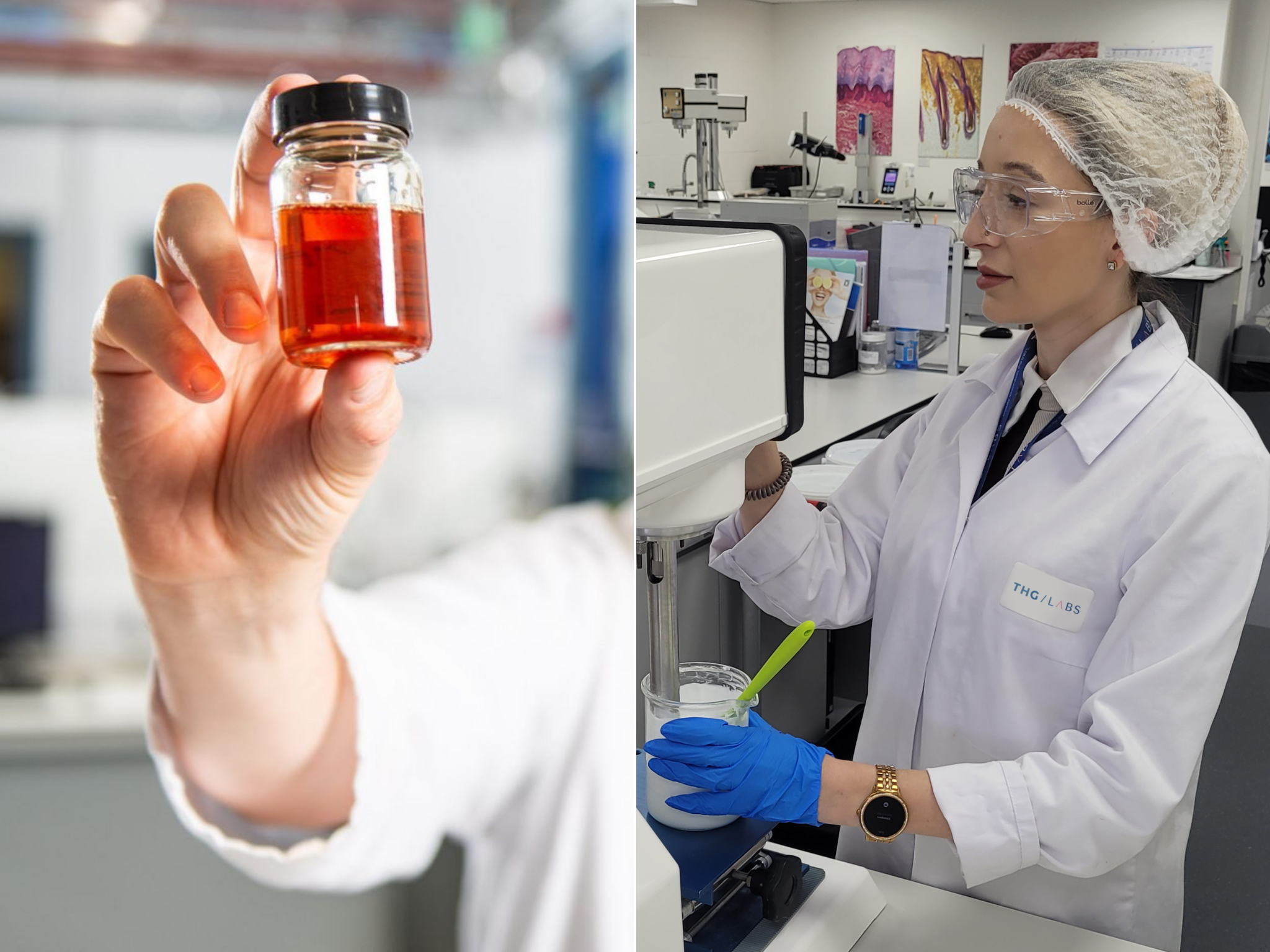THG Labs to Use Palm Oil Alternative Made From Waste Bread for Beauty & Personal Care Products
4 Mins Read
British cosmetics manufacturer THG Labs has partnered with Clean Food Group to develop beauty and personal care products with eco-friendly oils made from food waste.
THG Labs, the product development division of British personal care giant THG, is looking to lower the cosmetics industry’s ecological impact through a partnership with Clean Food Group, a London-based biotech firm making yeast-based alternatives to planet-harming fats like palm oil.
The two firms will work together to create new raw materials using a “low-impact, high-performance oil” for use in beauty and personal care products, aiming to provide cosmetics producers with more sustainable and effective equivalents to “agriculturally intensive” ingredients.
The upcycled oil leverages Clean Food Group’s fermentation technology to feed scalable non-GMO yeast strains on waste bread, and turn them into what it says are “bio-equivalent alternatives” to resource-intensive and highly polluting oils.
“Building on THG Labs’s passion for biotech and commitment to a more sustainable future, we are thrilled to be collaborating with Clean Food Group on a new era of innovation in sustainability,” said Kristal Goodman, head of product innovation at THG Labs.
Clean Food Group’s ‘robust’ yeast sets it apart

THG (formerly The Hut Group) is an e-commerce leader with online stores like Lookfantastic, Cult Beauty and Dermstore under its umbrella, as well as brands such as Christophe Robin, Biossance, Eyeko, and Grow Gorgeous. Its products range from beauty and personal care to wellness and nutrition.
THG Labs is its UK product development centre, whose innovation and R&D teams create white-label products for multinationals, industry giants, and independent labels.
“We’re constantly challenging ourselves to improve the environmental impact of our products, not only within the manufacturing facility but also in the supply chain of our raw materials,” said Goodman.
Clean Food Group, meanwhile, has its roots in the University of Bath, whose professor Chris Chuck’s 10-year research effort forms the base of the firm’s proprietary, aided by £7.5M in UK government funding. By employing microbial fermentation and using up food waste, the startup lowers the emissions related to producing CleanOil by as much as 90% compared to terrestrial oil manufacturing.
“We’ve got a really robust yeast that is capable of growing in low-sterile conditions, so we can retrofit existing fermentation units – we don’t have to go out and build new bioreactors,” Clean Food Group CFO Tom Ellen explains on its website. “This dramatically decreases capex and lead time to scale to market.”
He adds: “This is a big point of differentiation compared to our competitors who are using less robust yeast, or genetically modified organisms, which means they require pharmaceutical style, purpose-built bioreactors.”
Now, with the THG partnership, Chuck said the company wants to “bring to market a range of science-led cosmetics and personal care products that put sustainability at their core”.
Palm oil alternatives gaining ground amid widespread deforestation

Clean Food Group is currently raising a Series A round to scale up its operations – the company has raised £13M to date, following a €2.5M investment from UK climate investor Clean Growth Fund.
It is among a number of startups tackling a major contributor to the climate crisis. Palm oil is present in nearly half of all supermarket products, and around 70% of all cosmetics contain at least one palm-derived raw material.
But it is a significant source of tropical deforestation, which contributes to nearly a fifth of all global emissions. Around 90% of the world’s palm trees are in Indonesia and Malaysia, where these plantations have been directly responsible for widespread wildfires in recent years. The industry is also a threat to wildlife and human rights, particularly Indigenous communities.
Global production of this oil, however, has increased tenfold since 1980 – and demand is currently growing by 4% every year. This would lead to more forests being felled and burned, a form of mass deforestation that emits greenhouse gases while removing the trees that would sequester them.
There are a number of startups using fermentation to make more sustainable replacements for palm oil, contributing to an alternative fat market that’s set to grow by 6% annually to reach $4.5B by 2032 These include fellow British firm PALM-ALT, Estonia’s Äio, Dutch startups Time-Travelling Milkman and NoPalm Ingredients, and US players Kiverdi and C16 Biosciences.
These companies have attracted interest from industry-leading businesses and big-name investors. Clean Food Group has previously received funding from Döhler Ventures, while Unilever has backed San Diego’s Genomatica, whose microbial palm oil alternative is suited for personal, home and cleaning products. And C16 Biosciences counts Bill Gates’s Breakthrough Energy Ventures as an investor – last year, its palm oil alternative was part of a soap bar by Haeckels and Pangaia.



